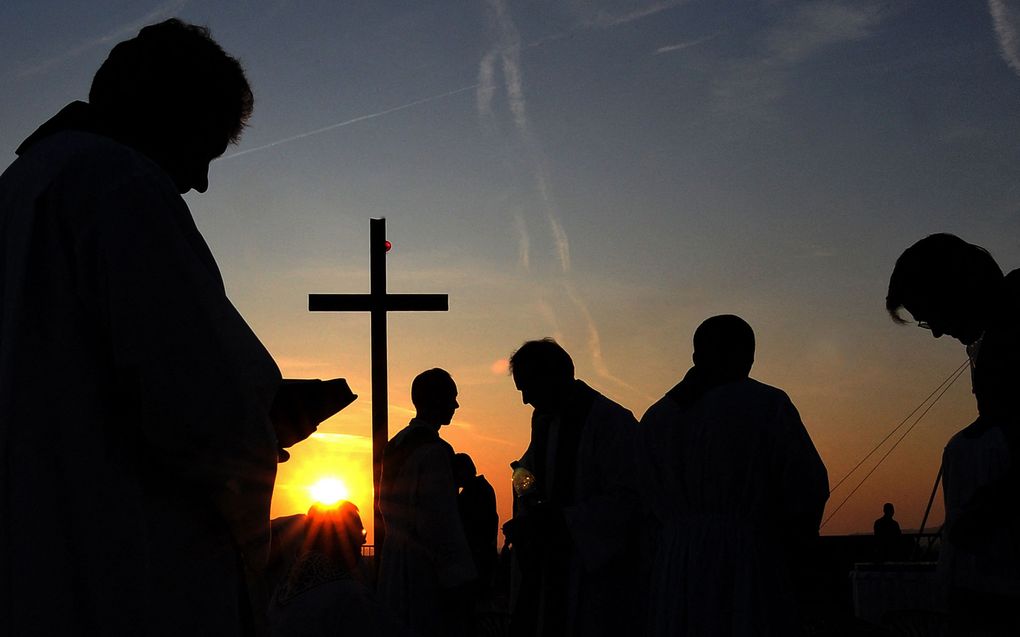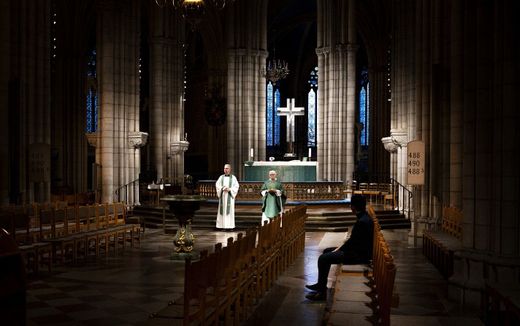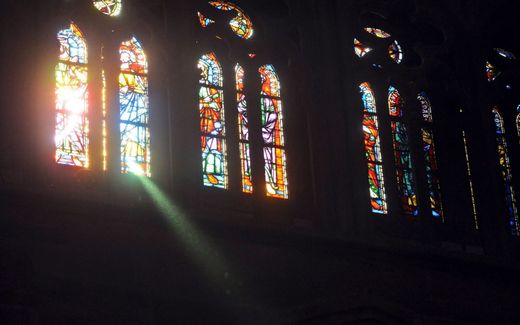The Easter message is the answer to our modern times
08-04-2023
Opinion
Per Ewert, Världen idag

Shillouetted priests pray near the altar where Pope Benedict XVI will serve a Sunday Mass at Eastern Czech metropol of Brno. Photo AFP, Joe Klamar
Opinion
Last year, around this time, Koran-related riots took place in Swedish cities. They came with massive violence against the police. This Easter week, Swedish paramedics have sounded the alarm as well. More and more people quit their profession because they are exposed to too many violent attacks.
These are two of several serious temperature gauges of the present day. Something has gone very wrong in a society when those who are supposed to uphold the law and save lives cannot bear to continue their job. Not because there are too many people in need but because evil and violence hit even those who want to help.
When we follow the news, we can easily get the feeling that our existence has spun out of control and that human ideologies, despite all their proud mottos, lack the ability to create an earthly paradise. We need to understand the deeper roots of the problem.
Starting point
Easter week is the centre of the magnificent drama in which God realises His salvation plan for the world. God's creation was originally good, very good even. But man chose to go his own way, away from his Creator. Thereby, he inflicted, humanly speaking, incurable damage to the world. Such an understanding of the world is important and also the reality-connected basis when politics, culture and, of course, the church is to describe the existence and the way forward.
Every sustainable worldview should start with the fact that man contains both beauty and ugliness. The Biblical worldview describes two central starting points of existence. The first: Creation was good from the beginning. There is something magnificent about man, life and all of creation. Something that must never be violated or oppressed. The second: Man is a fallen creature, prone to collapse into the darkest evil and infamy. Any social analysis concealing either of these two sides cannot last long while meeting reality.
Perfection
The political left tends to overemphasise the first factor. They say that man is intrinsically good and can reach perfection if only system errors x, y, or z are corrected.

However, this vision does not match the way humanity actually is. The roots of the human dilemma lie considerably deeper than issues that can be addressed through political decisions. The problem ultimately lies with ourselves.
The right, on the other hand, may have the tendency to overemphasise man's fallen nature and hope that a good society will come into being if we manage to push back man's worst sides with harsher means of coercion and stricter punishment. But despite this deeply imperfect human nature, every human being still has a gem of dignity, even the most depraved ones.
Destructive
In recent decades, our culture has overemphasised the first vision. It is true that humanitarian empathy should be a central part of both social life and the church. But if we only emphasise the good in man without considering our fallen nature, sooner or later, the destructive side of us will take over.
The message of the New Testament is that the Kingdom of God is already here but not yet finalised. Jesus did not come into the world because it was good. Instead, He came because it was fallen. He expressed His love but also allowed Himself to be exposed to the grossest form of human evil.
Jesus shone with the light of God, but He also grieved that men loved the darkness more than the light because their works were evil. He reached out to all who needed Him, but He was merciless in His criticism when people wanted to replace God's commandments with their own visions. The world cannot survive on its own. The Christian church is, therefore, an inalienable voice in society to explain what has gone wrong and where the path leads to healing the world's damage.
About the author

Per Ewert is a Swedish researcher and social debater. He leads the Christian think tank Clapham Institute and recently received his PhD on the role of social democracy in Sweden's secularisation.
This article was translated by CNE.news and previously published by the Swedish Christian daily Världen idag (The world today) on April 6, 2023
Related Articles








